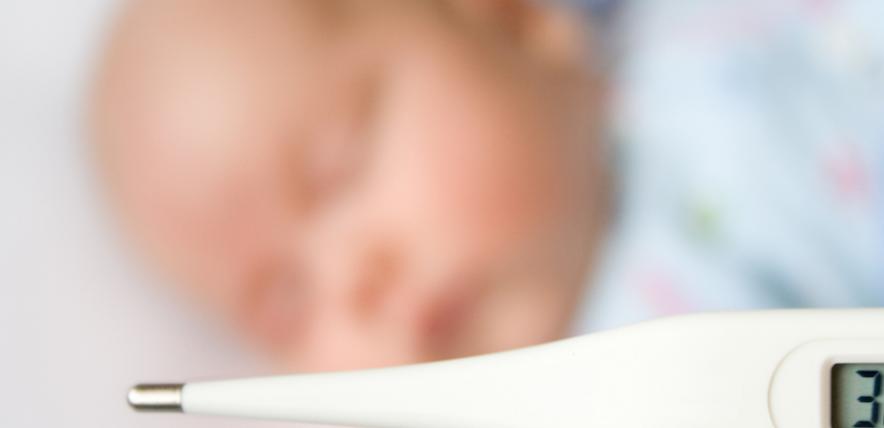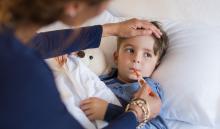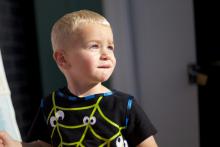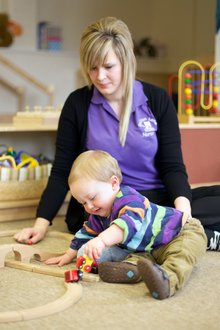Febrile convulsions or seizures, can be a terrifying for parents, not least because they strike when children are very young – usually between six months and three years of age.
They are often confused with epilepsy, because the symptoms appear similar, but they have quite different causes (See our post on epilepsy in children).
However, where children have a history of febrile seizures there is an increased chance they will have epilepsy later in life.
When do febrile seizures happen?
Febrile seizures occur when a child has a fever of 38C or higher, often as a result of an illness such as flu, chickenpox, tonsillitis or a middle ear infection.
They may also occur after a child has had a vaccination, though this is very rare. Experts believe that a child as a 1 in 3,000 to 4,000 chance of a having a febrile seizure after the MMR vaccine, falling to a 1 in 11,000 to 16,000 chance with the 6-in-1 vaccine, which includes polio, tetanus and whooping cough.
What do febrile convulsions look like?
The convulsions usually manifest as stiffness in the arms and legs, and twitching — which is where they may appear to be like epilepsy. The child may also lose consciousness and may wet or soil themselves.
Sometimes, children having a febrile convulsion may vomit or foam at the mouth, or their eyes may roll. It is likely that after a seizure they will be very sleepy.
How long will they last?
However frightening and distressing the symptoms may appear these convulsions are usually harmless and will normally last less than five minutes. A febrile seizure such as this will happen once during your child’s illness.
Experts advise that while the seizure is happening, you should try to cool down your child, gently removing any clothing or opening a window if the room is too warm.
In extreme cases, febrile convulsions may last longer and repeat within 24 hours. These are called complex febrile seizures and may affect only one part of the child’s body. Children who have a history of complex febrile seizures have a 1 in 20 chance of developing epilepsy in later life.
What should I do if my child has a febrile convulsion?
If you think your child is having a febrile seizure place them in the recovery position and try to time how long the seizure lasts. Don’t try to give them any medication during this time. Try to remember their symptoms as this will help the doctor to make a diagnosis. If there is any doubt as to your child’s condition, the doctor may request urine or blood tests, or an EEG to measure their brain activity.
In some cases, a lumbar puncture may be needed to extract a small sample of the fluid that surrounds the brain and spinal cord, as this will show signs of an infection of the brain or nervous system.
You should take your child to the nearest hospital or dial 999 if this is their first seizure, or it lasts longer than 5 minutes, with no signs of stopping. You should also seek urgent medical help if your child is having difficulty breathing or you suspect the convulsion may have been caused by another illness, such as meningitis.
Your child may also need to see a doctor of they’re showing signs of dehydration, such as sunken eyes, a dry mouth, no tears when crying, or when the fontanelle, or soft spot at the top of a baby’s head, is sunken.
Experts estimate that about a third of children who have had a febrile seizure will have another one within the first year, if they are poorly with another infection. This is more likely to happen if the first convulsion happened before the child was 18 months old, and if there’s a history of seizures or epilepsy in the family.
Normally, doctors won’t prescribe medication aimed at preventing further seizures, as the side-effects negate any positive impact. However, in some circumstances, they may recommend treatment where the febrile seizures are prolonged and usually this will be diazepam or lorazepam, which is taken when the fever starts.
Written by Dorothy Lepowska-Hudson for the Pre-school Learning Alliance
This article is for information purposes only and should not be used as a substitute for professional medical help. If you or your child is unwell you should consult a medical professional.
Further reading:







